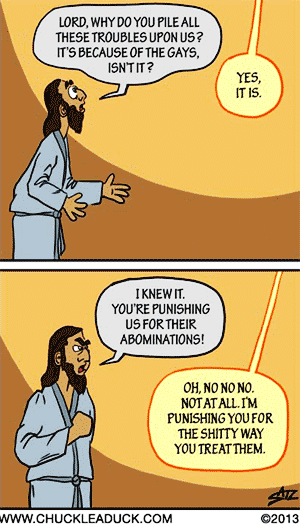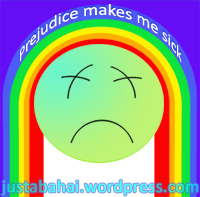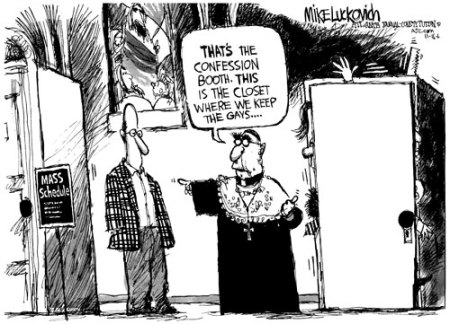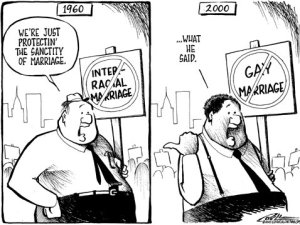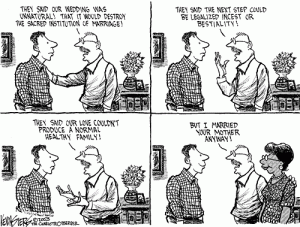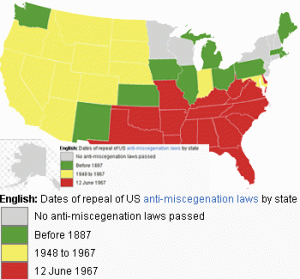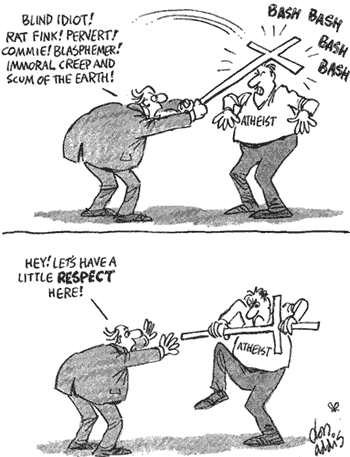The following is a letter I sent to my NSA and the individual who made the comment about the email I had posted on the Dutch Bahai e-list. I think it is self-explanatory.
—
5 September 2009
Dear PP and the members of the National Assembly of the Bahais of the Netherlands,
I am writing in English because I experienced a case of my words in Dutch, being misinterpreted by PP on the “berichten-bahai lijst” (a Dutch language email bahai list). If I had been able to correct this misinterpretation of my words on the same list this would not be a problem, but then my email address was blocked, so I could not respond and correct the false impression left with the readers. My emails to the person in charge of the email list got no response, so I was left in the dark as to why my emails to the list were being rejected, while other emails were being posted to the list.
Then on Friday, September 4th, I asked a Dutch Bahai to forward my response to the list on my behalf. She did this and then forwarded me a letter that the N.S.A. had sent to all members of this Bahai list, informing everyone that the list is now closed to input from individuals. Emails from others on the same list had come through until Thursday, so I assume that only I was blocked from sending messages in the past week. Since I did not get the letter the NSA sent to the berichten list on Friday evening, I guess that I have been removed from the list.
It is now clear to me that after PP’s response to me on the list, someone decided that I had no right of response. I see this as going against Bahai principle of justice, because now readers on that list will think that PP’s misinterpretation of my intention is correct. Dutch is a second language for me, so that’s why I didn’t see that the words could be interpreted in the way that PP did. I’m not upset with PP, but I think it is unjust that I have no chance to correct the impression he has given of my words, and that whoever first blocked me, and later removed me, from the Berichten list should have informed me, and checked the facts, which would have given me a chance to correct any misunderstandings. It is my understanding that consultation and justice are important principles of the Bahai community.
Given that there was no response to my emails and that I was not sent the letter sent to others on the list informing everyone that input to the list is now closed, the best solution to this situation is to send you the response that was blocked, so that you will know what I had intended by the words ‘maar alleen’ (in English this means ‘but only’ which given the context of the sentence, does not indicate a lesser value).
I would appreciate it if a message could go to the Berichten list saying that I was blocked from posting to the list on Sunday August 30th, and that I had wished to correct a misunderstanding of my words and regret not being able to do so.
In the spirit of openness, which is very important to me, I am also posting this (with names and emails deleted) on a blog, so anyone can read this for themselves.
I am doing this, not as a form of protest but in the spirit of openness and what seems to me as the wisest course of action in response to what has happened.
The Bahai Faith is a fantastic religion and has nothing to hide.
“It is likewise so in the world of religion. When freedom of conscience, liberty of thought and right of speech prevail, that is to say, when every man according to his idealization may give utterance to his own beliefs development and growth are inevitable.”
(‘Abdul-Baha, Star of the West, Vol. 3, No. 10, p. 19)
For me the Bahai principle of independent investigation means that individuals, any individual, may have access, as much as is feasible or possible, to the source of things themselves so that they may decide for themselves. And so anyone is free to read the text here: justabahai.wordpress.com
I am also putting all of this online on a blog because I have seen how rumours and backbiting about issues or people can be so destructive. Bahais need to be able to check the facts, ask questions, express themselves, discuss issues and change their views as a result of the discussion (myself included of course). Forums for discussion are a vital part of any community.
I am sorry to see the berichten list closed to individual input and discussion. If the problem had been because of my response to PP or because of my original posting sent a day earlier, then, if I had been informed that ‘berichten’ was not the forum for discussing issues related to homosexuality and the Bahai writings, I would not have posted on this topic in that case.
Yours sincerely,
Sonja van Kerkhoff
—
The following is the email that was blocked from the Dutch Bahai e-list
(Click anywhere on the Dutch text for the English translation)
Hoi Iedereen,
Sinds zondag worden mijn emails aan de berichten-lijst geweigerd, dus heb ik JJ gevraagt als zij dit email namens mij aan dit lijst wilt sturen.
Bedankt aan iedereen voor de reacties op mijn email. Als ik weer toegang krijg, zou ik aan hun reageren.
Bedankt voor jouw reactie PP, Je schreef:
“Los van het onderwerp dat je wilt aansnijden, ben ik het niet eens met je zin formulering en de strekking er van: “Iets dat niet in de Geschriften van….staat, MAAR ALLEEN in de brieven namens Shoghi Effendi en in de brieven van het Universele Huis van gerechtigheid.”
Sorry, mijn ‘maar alleen’ was helemaal niet zo bedoeld. Bedoeld was, dat de teksten expliciet over homoseksualiteit zijn ALLEMAAL of brieven namens Shoghi Effendi of brieven van het Universele Huis van Gerechtigheid. De verschillende soorten teksten hebben elke hun eigen regels voor het lezen en toepassen. Als een groep teksten allemaal brieven van Shoghi Effendi zijn, zouden we hetzelfde principes op die toepassen.
Een brief namens Shoghi Effendi zegt over deze brieven: “their style [is] certainly not the same, and their authority less” (voor tekst omheen en bron zie onderaan) – dat hun autoriteit is minder dan dat van wat Shoghi Effendi zelf schreef.
Maar wat betekent ‘minder’ autoriteit? Dat ze zijn niet woord voor woord van Shoghi Effendi is duidelijk, maar is hun autoriteit dan ook zo algemeen als de woorden van Shoghi Effendi, of een autoriteit voor de onmiddellijk handelen van degene die een vraag had gesteld, in die situatie?
Shoghi Effendi zei ook dat hij had zelf geen wetgevende macht. Als men zegt dat een brief namens Shoghi Effendi geldt als regel voor alle Bahai’s voor altijd, is het dus ‘de wet’ op hetzelfde niveau als de woorden van Baha’u’llah. Maar kan een secretaris van Shoghi Effendi een wetgevende macht heb, als Shoghi Effendi die macht niet heeft? Zou zo’n toepassing de bedoeling van Shoghi Effendi kunnen zijn?
De brieven van de UHG geven ons regels voor het handelen, maar wat de UHG een keer zegt, kan het later ook veranderen. Shoghi Effendi schreef dat “flexibility” is een van de redenen waarom wij een UHG hebben (Shoghi Effendi, The World Order of Baha’u’llah, p. 148). Omdat de brieven van het UHG over ons huidige handelen gaan, en niet over de interpretatie van het Bahai leer, kunnen we over de verschillende mogelijkheiden discussiëren (bijv. toekomstige houding met homohuwelijk), zonder dat we het autoriteit of waardigheid van het UHG verminderen. Ik heb nog verder gedachten, onderbouwd met citaten, in het engels geschreven hier:
…I have written further ideas, supported with quotations, in English below:
Bahais accept the Bahai Writings as being only that authored by The Bab, Baha’u’llah and ‘Adbul-Baha. And Shoghi Effendi’s own writing only defines the Bahai teachings where it interprets the Bahai Scriptures.
So let’s start with the Kitab-i-Aqdas as we have it in English because it is the only place in a text of Bahai Scripture where there is something concerning homosexuality mentioned.
In the preface to this book it is written by the Universal House of Justice or the Research department (no author is given in the 1992 edition for the preface) that:
“In 1953 Shoghi Effendi, the Guardian of the Bahá’í Faith, included as one of the goals of his Ten Year Plan the preparation of a Synopsis and Codification of the Laws and Ordinances of the Kitáb-i-Aqdas as an essential prelude to its translation. He himself worked on the codification, but had not finished it when he died in 1957. The task was continued on the basis of his work, and the resulting volume was released in 1973. That publication included, in addition to the Synopsis and Codification itself and explanatory notes, a compilation of the passages from the Kitáb-i-Aqdas which had already been translated by Shoghi Effendi and published in various books.”
The Kitab-i-Aqdas, p. vii
Nothing indicates which parts where penned by Shoghi Effendi in his role as interpretator of the Baha’u’llah’s Writings and what was not written by him, so we have to take all text apart from what is in the Aqdas as either something the UHJ is interpreting, which we know they cannot do or as commentary open for debate, even should the UHJ then decide that some point in the commentary is now to be law they have legislated on. I make this point, because even should the UHJ make a law to legislate that, for example, same sex marriage is forbidden by Bahais, we as Bahais would still be free to discuss and debate this. The laws that the UHJ makes one year, it can also change next year. Obedience to laws doesn’t mean silence. And of course, if Bahais may not discuss or debate laws the UHJ have made, well, that leaves very little room for the Bahai principle of independent investigation, let alone the possibility for Bahai communities to address or relate or to understand these laws.
So now to the text of the Aqdas as it is in the 1992 edition in English:
“We shrink, for very shame, from treating of the subject of boys.”
Baha’u’llah, The Kitab-i-Aqdas, p. 58
And now to what is in the notes to the Aqdas. The Research department or the UHJ have written in the notes section:
” 134. the subject of boys # 107
The word translated here as “boys” has, in this context, in the Arabic original, the implication of paederasty. Shoghi Effendi has interpreted this reference as a prohibition on all homosexual relations. The Bahá’í teachings on sexual morality centre on marriage and the family as the bedrock of the whole structure of human society and are designed to protect and strengthen that divine institution. Bahá’í law thus restricts permissible sexual intercourse to that between a man and the woman to whom he is married.
In a letter written on behalf of Shoghi Effendi it is stated:
No matter how devoted and fine the love may be between people of the same sex, to let it find expression in sexual acts is wrong. To say that it is ideal is no excuse. Immorality of every sort is really forbidden by Bahá’u’lláh, and homosexual relationships He looks upon as such, besides being against nature. To be afflicted this way is a great burden to a conscientious soul. But through the advice and help of doctors, through a strong and determined effort, and through prayer, a soul can overcome this handicap.
Bahá’u’lláh makes provision for the Universal House of Justice to determine, according to the degree of the offence, penalties for adultery and sodomy (Q and A 49).”
ibid, p. 223
So let’s assume this is the voice of the UHJ of the early 1990s because this publication is considered an official document by the Bahai Administration. That the UHJ state “Shoghi Effendi has interpreted” and then refer a letter written on behalf of Shoghi Effendi, indicates that they are treating letters written on behalf of Shoghi Effendi as if Shoghi Effendi himself wrote them. The letter they quote above does not have a reference to anything in Bahai Scripture and the letter does not state that it is an interpretation. This is very important if we are serious about what really is part of unchangeable Bahai Scripture and what isn’t.
Unfortunately Shoghi Effendi never penned anything himself in regards to the status of these letters written on his behalf, except I assume, when he must have been annoyed enough to ask a secretary to write the following:
“I wish to call your attention to certain things in “Principles of Bahá’í Administration” which has just reached the Guardian; although the material is good, he feels that the complete lack of quotation marks is very misleading. His own words, the words of his various secretaries, even the Words of Bahá’u’lláh Himself, are all lumped together as one text. This is not only not reverent in the case of Bahá’u’lláh’s Words, but misleading. Although the secretaries of the Guardian convey his thoughts and instructions and these messages are authoritative, their words are in no sense the same as his, their style certainly not the same, and their authority less, for they use their own terms and not his exact words in conveying his messages. He feels that in any future edition this fault should be remedied, any quotations from Bahá’u’lláh or the Master plainly attributed to them, and the words of the Guardian clearly differentiated from those of his secretaries.”
Shoghi Effendi, The Unfolding Destiny of the British Baha’i Community, p. 260
What this doesn’t tell us, is whether the ‘authority’ of the letters by secretaries is an extension of the Guardian’s executive authority as head of the Faith — meaning, “it must be obeyed by the addresse” or of the Guardian’s authority as authorised interpreter of the writings, meaning “they become part of the sacred text.” What we can say is there is nothing explicit to indicate that a letter by a secretary can share in the Guardian’s unique role as authorised interpreter. There is also nothing explicit to say that the Guardian’s secretaries do not share the authority of interpretation. However the phrase “their authority less” seems to suggest this, because an exective authority can be greater or less, direct or indirect, can apply to a local or individual situation or to all Bahai communities, but when the Guardian interprets scripture that interpretation becomes part of the scripture concerned.
If something is considered part of the Bahai Writings, it cannot be changed. That is, sex with children can never be OK in Bahai law, because this is part of what Baha’u’llah’s text in the Aqdas. All the texts in the notes have been penned by others and unless the texts in the notes refer to quotations from the Bahai Scripture themselves, they are all open to change by the UHJ. I would also imagine that if the UHJ were to make a law, that it would clearly state that it was making a law. So in my view, it is unclear to me what the actual status is of the texts in the notes section. I make this point because in 1992 when the Aqdas was first printed in English a list of corrections was distributed about 6 months later. In regards to the Aqdas, the corrections were minor things like typos, but in the notes, sometimes a whole paragraph was deleted, such as in note 108. I can only assume that this paragraph no longer reflects the position or thinking of the UHJ whereas at an earlier time it did.
The UHJ is free to change the texts of the notes as it wishes. Perhaps this could be seen as them making laws? I don’t know. Rather than debating whether or not the UHJ make law when they make statements in official Bahai documents, I prefer to focus on the principle of Bahai Law as I understand it, in general behind this. That is, anything UHJ decides or states is subject to change by a later UHJ. If any statement on the wrongs of homosexuality is by UHJ, then it is subject to change.
— gr. sonja
The English section above is more or less what I wrote a few weeks ago here:
http://bahairants.com/change-is-a-law-of-nature-666.html#comment-15258238
—
Below is my original post to the e-list which PP responded to.
zaterdag 29 augustus 2009 16:04
To:
Berichten
Subject: [Berichten] Ze denken zeker dat God gek is… > gelijkwaardigheid
over het thema “diversiteit”
Wat momenteel voor mij van belang is gaat over het ongelijke behandelen van homo’s in de bahai gemeenschap.
Iets dat niet in de Geschrijften van De Bab, Baha’u’llah, Adul-Baha of de
officiele interpretaties van Shoghi Effendi staat, maar alleen in de brieven geschreven namens Shoghi Effendi en in de brieven van de UHG.
Trouwens voor iemand mij kwalijk neemt, bahais mogen andere meningen dan Het Universele Huis van Gerechtigheid hebben en ook discusseren. Gehoorzaamheid is niet hetzelfde als stilte van gedachte. Maar meer belangrijk Het Universele Huis van Gerechtigheid kan alleen flexibel werken als Bahais over alles discusseren en proberen hun religie in relatie
met hun omgeving te brengen.
Ik heb dit in engels geintroduceerd onder thema “Change is a Law of Nature”
hier >>
http://bahairants.com/change-is-a-law-of-nature-666.html
een commentaar van mij op wat in de Aqdas staat hier
>>
http://bahairants.com/change-is-a-law-of-nature-666.html#comment-15258238
een commentaar op het idee dat an Het Universele Huis van Gerechtigheid
heeft een wet erover gemaakt:
http://bahairants.com/change-is-a-law-of-nature-666.html#comment-15015696
een commentaar over het bahai principe dat wij de wetten van ons land
moeten gehoorzamen (en een beetje over ideeen over de rol van
religieuze wetten)
http://bahairants.com/change-is-a-law-of-nature-666.html#comment-15264399
Ik ben benieuwd hoe Bahais in nederland hierover, want ik heb geen flauw
idee. Mijn homo kennisen hier in nederland hebben helemaal geen behoefte aan een religie die hun discrimineert. Mijn enige homo Bahai kennisen wonen in andere landen waar de meerderheid zijn opgegroeid in een bahai gezin.
Jaren geleden had ik voor het laatst iets over dit onderwerp op deze lijst geschreven en de reactie van een aantal was dat zij vonden dit geen onderwerp voor de berichten lijst was. Ik hoop dat dat niet meer het geval is, maar, geen zorg, ik laat dit liggen als dat de mening van deze groep is.
En zorg niet, voor mij is dit een heel belangrijk onderwerp maar ik respecteer dat voor anderen dit geen belangrijk onderwerp is.
gr. Sonja
—
October 2009
Just prior to this phone call in October 2009, a Bahai told me that my response had been posted to the list on the morning it was closed down, but because I was blocked from the list I was unaware of this.
Dear X
Thank you for your phone call inviting me for a meeting with you and another person on behalf of the N.S.A. of the Netherlands.
As I understand it, this is in response to my letter sent to the N.S.A. on September 5th, concerning my removal from the “berichten” list and the banning of my messages to the list.
I asked on the phone if my husband could also be at this meeting and found it confusing that you said no, I could only come to this alone, but also told me this was not a condition for the meeting. That made me realise that already there is some miscommunication. That is also why I repeated the question whether this was an “eis” (condition) twice to be sure.
So, for the sake of clarity, I am replying in a letter for the N.S.A., which I hope will be less confusing.
I was hurt and surprised that you told me my husband, Sen McGlinn was not allowed to be present at the meeting. I was surprised because in the past when Sen had a meeting with the counsellors and asked if I could be present, there was no objection.
In our family we consult and as a married couple it is our choice, where possible to do important things together. I saw this meeting as something important.
This is the main reason I see little point in a meeting. The second reason is that it is not clear to me what this meeting is about.
Assuming that it is in response to my letter and that my questions were not clear, I’ll rephrase them here.
Since I wrote that letter I have learnt that my message was sent to the “berichten-lijst,” only I did not know this because I had been removed. Since readers to the list could have seen my response to PP’s comments, for me the matter is closed. I’ve had a chance to correct the misunderstanding for the list members.
As I understand it, I am now blocked from the berichten list, if it exists. I have no idea. Of course, it is not the responsibility of the N.S.A. to inform me, but as a member of your Bahai community I’d appreciate being informed if:
1. I am blocked from this list forever
2. What do I need to do to join or what conditions I need to follow to be able to join
I realise the members of the N.S.A. are very busy people and I
appreciate this, so of course, I am not demanding a response.
I will assume if there is no response that I am blocked from the
‘berichten lijst’ forever and will make no further attempts to join. And so there is no concern for the N.S.A. I also will not make any attempts to participate in any future Dutch language email groups or forums either.
The comments that I originally made on the “berichten lijst,” in
response to an individual’s comments in favour of openness, was an attempt to discuss the issue of homosexuality in a Bahai context, in the hope of of increasing understanding and hearing other Bahais’ views. It is clear to me because I was immediately blocked from responding, that this is not welcome as a topic at this time. I am sure that are many reasons for this, and it is not my place to speculate why.
I hope my comments were not the reason the list was shut down as I do think discussion and consultation are very important. This is why I am stating that I will not participate in any Dutch language Bahai e- list again. To me it is more important that Dutch Bahais talk to each other on various issues than that I am involved.
Life is very good and as a Bahai I feel blessed, so even though I am removing myself from the possibility of any Dutch Bahai e-list. so the N.S.A. does not have to remove me, should that be a concern. It does not mean that I feel any less a Bahai. There are many ways of doing service.
In the spirit of openess, I will also put this on my blog and so
everyone will know I have chosen to remove myself from any Dutch Bahai e-lists or discussions. In the same spirit of openness you are free to share this letter and my letter of September 5th with anyone.
yours sincerely,
Sonja van Kerkhoff
